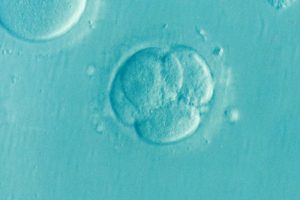
Egg Donor
Egg donation has become a more common option for women experiencing fertility issues caused by poor egg quality or diminished ovarian reserve (meaning low egg count or quality of eggs).
As with other types of donors for artificial insemination, there are a couple of options when choosing to go with egg donation: fresh and frozen.
Fresh donations come once you are matched with an available egg donor through a matching service unless you personally know another woman who is interested in donating her eggs to you. Frozen egg donations are available through various cryobanks and are either the result of women who have been compensated for voluntary egg donation or from women who have frozen eggs remaining from IVF cycles that they will not be using but wish to donate.

If you decide to speak with your fertility clinic regarding egg donation, it is important that you ask them for insight on the differences between using fresh or frozen egg donations. Costs will vary depending on agency and donor fees, as will the time allotment. Time variation is due to the fact that it can sometimes be difficult to find a donor who meets your personal criteria, while it is also possible that a selected donor may not respond as well to the medication needed for egg retrieval.
As with sperm, fresh eggs do tend to have a higher viability and success rate since egg quality can diminish from the cryopreservation process. Below is a generalized comparison between using fresh versus frozen egg donations.
Egg Donation: Fresh versus Frozen
.
Cost
(USD)
Fresh
$12,000-$30,000
Frozen
$3,000-$16,000
Time
A few months
Immediately
Viability
Higher
Lower
Success
Moderate (~50%)
Lower (~36%)
If you are considering egg donation, you may also want to consider embryo adoption as another viable alternative, which can sometimes be more cost effective in both the short-term and long-run aspects of fertility treatment options.
How Ovulation Works
Best Ways to Improve Fertility
Conception Options
How Ovulation Works
Best Ways to Improve Fertility
Conception Options
Browse all Articles:
Trying to Conceive
Pregnancy
Motherhood
Self Care
SingleMomsByChoice.org is run by single moms by choice for single moms by choice, dedicated to helping educate, enlighten and empower women who are thinking about or who have decided to have a child “on their own” through donor insemination, egg or embryo donation, adoption or other assisted means.


